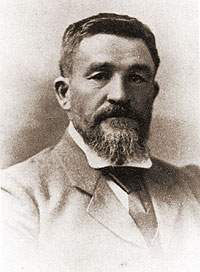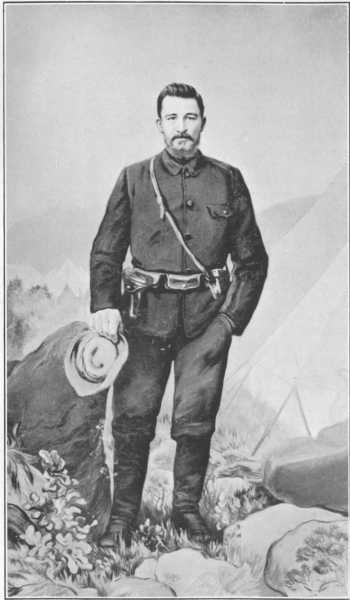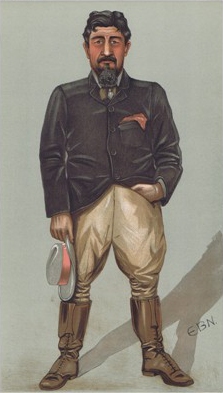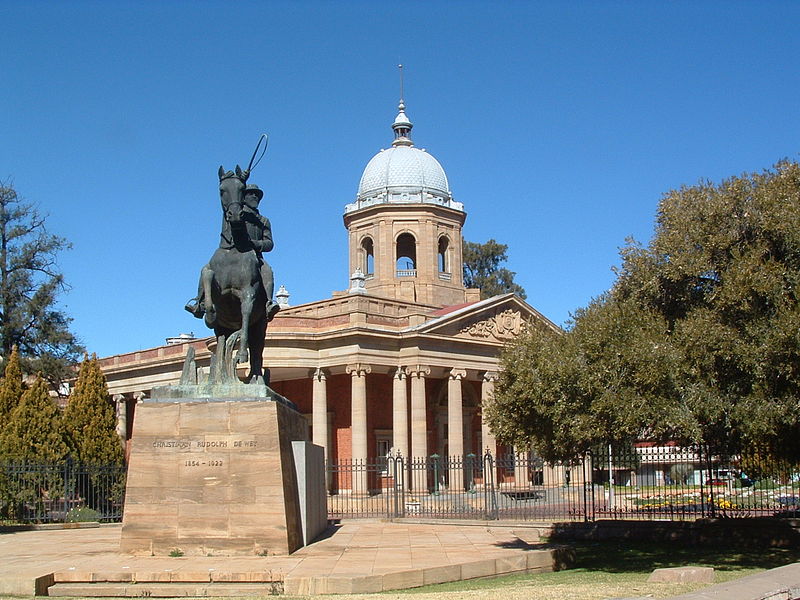<Back to Index>
- General of the Orange Free State Christiaan Rudolf de Wet, 1854
PAGE SPONSOR



Christiaan Rudolf de Wet (7 October 1854 – 3 February 1922) was a Boer general, rebel leader and politician.
He was born on the Leeuwkop farm, in the district of Smithfield in the Boer Republic of the Orange Free State. He later resided at Dewetsdorp, named after his father, Jacobus Ignatius de Wet.
De Wet is mentioned in Kipling's poem Ubique.
De Wet served in the first Anglo - Boer War of 1880 - 81 as a Field Cornet, taking part in the Battle of Majuba Mountain, in which the Boers achieved a victory over the British forces under Major General Sir George Pomeroy Colley. This eventually led to the end of the war and the reinstatement of the independence of the Zuid - Afrikaansche Republiek, more commonly known as the Transvaal Republic.
In the years between the First and Second Boer Wars, from 1881 to 1896, he lived on his farm, becoming a member of the Volksraad in 1897.
He took part in the early battles of the Boer War of 1899 in Natal as a commandant, later serving as a general under Piet Cronjé in the west. His first successful action was the surprise attack on Sanna's Post near Bloemfontein, which was followed a little later by the victory of Reddersburg. He came to be regarded as the most formidable leader of the Boers in their guerrilla warfare.
Sometimes severely handled by the British, sometimes escaping only by
the narrowest of margins from the columns which attempted to surround
him and falling upon and annihilating isolated British posts, De Wet
continued his successful career to the end of the war, striking heavily
where he could and evading every attempt to bring him to bay. His
brother Piet De Wet, another successful Boer general, was captured by
the British in July 1901 and subsequently served against Christiaan as a
member of the National Scouts (Boers serving with the British forces).
De Wet took an active part in the peace negotiations of 1902, briefly (30 to 31 May) in the role of Acting State President of the Orange Free State, when President Steyn had to leave the negotiations due to illness. De Wet was one of the signatories of the Treaty of Vereeniging. At the conclusion of the war he visited Europe with other Boer generals. While in England the generals unsuccessfully sought a modification of the peace terms concluded at Pretoria. De Wet wrote an account of his campaigns, an English version of which appeared in November 1902 under the title Three Years War. In November 1907, he was elected a member of the first parliament of the Orange River Colony and was appointed minister of agriculture. In 1908 - 9 he was a delegate to the Closer Union Convention.
De Wet was one of the leaders of the Maritz Rebellion which broke out in 1914. He was defeated at Mushroom Valley by General Botha on
November 12, 1914, taken prisoner by Colonel Brits on December 1, and
sentenced to a term of six years imprisonment, with a fine of
£2000. He was released after one year's imprisonment, after giving
a written promise to take no further part in politics.
